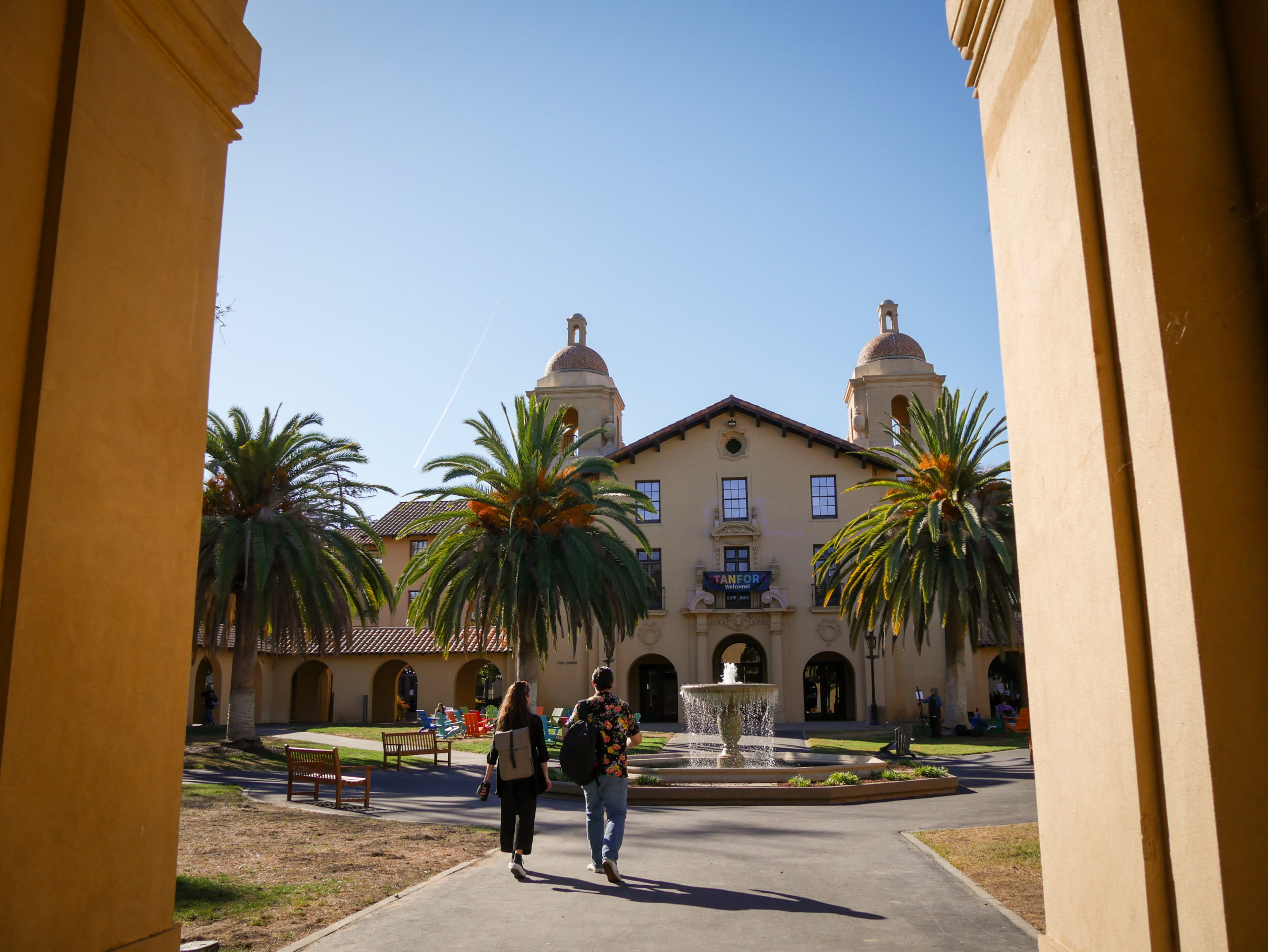Over 500 members of the Stanford community assembled at Old Union to break fast at an Open Iftar dinner and celebration organized by the Muslim Student Union (MSU) on Thursday.
Open Iftar took place as part of the Muslim community’s celebrations for Ramadan. The MSU has hosted iftars, fast-breaking evening meals, daily during the month of Ramadan with the help of funding from the Associated Students of Stanford University (ASSU) and volunteers from within and outside of the Muslim community.
In Islamic tradition, Ramadan is believed to be the month when the Qur’an — Islam’s central text — began to be revealed to the Prophet Muhammed over a 23-year long period. Over the course of Ramadan, Muslims fast daily from sunrise to sunset, starting with Suhoor, or their meal before sunrise, followed by Iftar, their traditional meal after sundown to break the fast.
Students and community members — Muslim and non-Muslim alike — came together at Old Union, where they ate Halal (Islamically permissible) foods, listened to speakers from the Muslim community and partook in prayers together.
Rami Awwad ’23, an MSU associate who engaged in conversations about Islam with community members over the course of Open Iftar, said that there are regularly non-Muslims on campus joining them in their fast.
“I’ve always thought that it was admirable that they wanted to go through it with us and feel spiritually closer to us and see what it’s like to live the life of a Muslim in Ramadan,” Awwad said.
Awwad also helped to provide English translations of the Qur’an and other resources to interested community members.
At 6:30 p.m. on Thursday, volunteers assembled at Old Union courtyard, setting up tables, prayer tarps, speakers and organizing food orders.
Mahmoud Hamdi ’24, the MSU Vice President, said that the MSU scheduled orders for up to 600 people.
The number of people at Old Union increased to approximately 80 around 7:25 p.m. Community members of different ages began conversing with one another. Shortly after, members of the Muslim community at Stanford spoke about themes of belief, discipline and diversity, with some describing Open Ifar as inviting and a show of community.
Hamdi said the event was “open to Muslims and non-Muslims alike.” He thanked volunteers at the event and addressed themes of justice and human rights around the world.
“We pray that you guide us to uphold Justice as you, oh Allah, are the most just. We pray that you restore justice and grant ease to our Muslim brothers and sisters suffering in Palestine, Ukraine, Sudan, Libya, Rohingya, Yemen, Syria, Turkey, India, Kashmir, Burma and everywhere else around the world,” Hamdi said.
As Hamdi spoke, people started to line up for dates and water, which are traditionally used to break the fast.
Hamdi proceeded to thank the ASSU for the attendance of its representatives, financial support and publicity for Open Iftar. Days before the event, the ASSU and MSU sent an email inviting Stanford students to attend.
Khandaker Aqib ’25, the MSU Public Relations officer, expressed gratitude for the ASSU’s support in publicizing and co-sponsoring Open Iftar to the broader Stanford student body.
“Islam is a religion that invites everybody and is accepting to everyone, and the fact [the ASSU] sent it out to everybody just reinforces that the Muslim community is open to anyone,” Aqib said. He said that “anybody willing to learn” is welcome.
“The collaboration with the MSU on the Open Iftar is what I would hope would be one of many other collaborations with other groups to help facilitate and celebrate their events and community with each other,” ASSU Executive President Darryl Thompson ’23 said at the event.
Shortly before 8 p.m., a call to join the Maghrib prayer — the fourth of the five daily prayers in Islam, taking place shortly after sunset — was made. Over 100 people came together to pray in White Plaza near the Claw fountain. Those in prayer directed themselves towards the city of Mecca, the holiest city in Islamic tradition, as the Qur’an was recited in Arabic.
Hamza El Boudali ’22 M.S. ’23, the former MSU president, spoke of the importance that Islam ascribes to praying towards Mecca.
People began to line up for food shortly after Maghrib was finished. People sat to eat throughout Old Union courtyard and inside Old Union, filling the stairwell and even extending into The Axe & Palm (TAP).
Lara Hafez ’24, currently an MSU co-president, said that she felt hopeful that a turnout of hundreds of community members during an event like Open Iftar, displaying aspects of Islam, could help address misconceptions about Muslims.
Ramadan celebrations in the country have continued as hate crimes have targeted the Muslim community, with a Koreatown Mosque being vandalized on Easter Sunday and a former U.S. Marine attempting to bring a bomb into an Indiana mosque. U.S. Representative Ilhan Omar (D-MN-05) introduced a resolution in condemnation of Islamophobia — domestically and abroad — on the first full day of Ramadan this year.
“Being able to actually highlight, through our actions and through this type of event, what it means to be Muslim is I think really powerful and allows a lot of people to feel like they can interact and coexist with people that are not Muslim,” Hafez said.
Rev. Tiffany Steinwert, the Dean for Religious and Spiritual Life, similarly commemorated Open Iftar’s role in the broader community at Stanford.
“I think the Open Iftar is one of the best examples of who we are as a Stanford community. It embodies the best of who we strive to be because it brings people across difference to celebrate community [and] the opportunity to be one across all of these differences,” Steinwert said.
